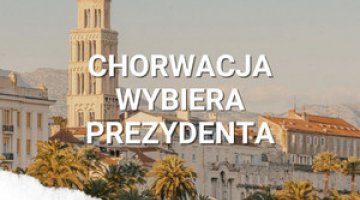Analyses
Croatia: an underwhelming ‘yes’ for EU membership
On 22 January, a clear majority of Croats who attended the referendum voted for Croatia to join the EU. 66% of the votes cast were for accession and 33% were against. However, voter turnout was very low – only 43.6%. People in all regions of Croatia voted predominantly for joining. However, the support level in Dalmatia (Dubrovnik and Split) was lower than in the regions neighbouring on EU member states. Holding a national referendum on joining this kind of international organisation is a constitutional requirement in Croatia. The result of the vote is binding, whatever the turnout.
Commentary
-
Although all parliamentary parties support the accession, the Croatian public is divided on this issue, and the result of the referendum was not really preordained a foregone conclusion. This is caused not only by problems currently existing in the EU itself, but above all by the high level of Euroscepticism in Croatia. This ambivalent approach to membership resulted in a low turnout. Croatians fear most of all the limitation of sovereignty for their young state and the transfer of competencies to EU institutions. They also think that Croatia, being a small state, will have little influence on the decisions taken in the EU. The way in which the accession negotiation process was conducted also adversely affected their approach to the EU. The EU’s support for Slovenia’s stance (Slovenia was demanding concessions from Zagreb in their border dispute by blocking the negotiations) the requirement of accountability for the war crimes committed by Croatian soldiers in the 1990s (for example, the case of General Ante Gotovina) and the need to restructure the shipbuilding and steel sectors of industry met with a negative public response.
-
The positive result of the referendum is partly an effect of the economic crisis which has severely affected Croatia and the public’s negative evaluation of their political elite, who are perceived as corrupt and inefficient (only 6% of Croatians trust their political parties). The crisis has revealed the lack of competitiveness of the Croatian economy, which is based primarily on tourism and subsidised heavy industry. Supporters of accession used the argument that EU membership will offer a chance for a faster and more sustainable economic development. Accession is also expected to be a remedy for corruption and nepotism practiced among the ruling class. A civilisational argument has also been used in support of Croatia’s presence in the EU. Its entry to the EU will confirm that this country belongs to the Western cultural sphere and emphasise its distinction from the Western Balkans, which the Croatian public does not wish to be identified with.
-
Before Croatia is granted EU membership the accession treaty needs to be ratified by all member states. None of them is planning to hold a referendum on this issue. However, some member states (for example, the United Kingdom) will make the ratification dependent on the continuation of the reform process in Croatia.
The European Commission (EC) has applied a monitoring process to Croatia, which envisages the publication of annual reform progress reports. Reports concerning the most problematic issues in Croatia will be published semi-annually. Some EU member states are likely to make the ratification dependent on the EC’s evaluations. In the European Commission’s opinion, Croatia will join the EU on 1 July 2013.




